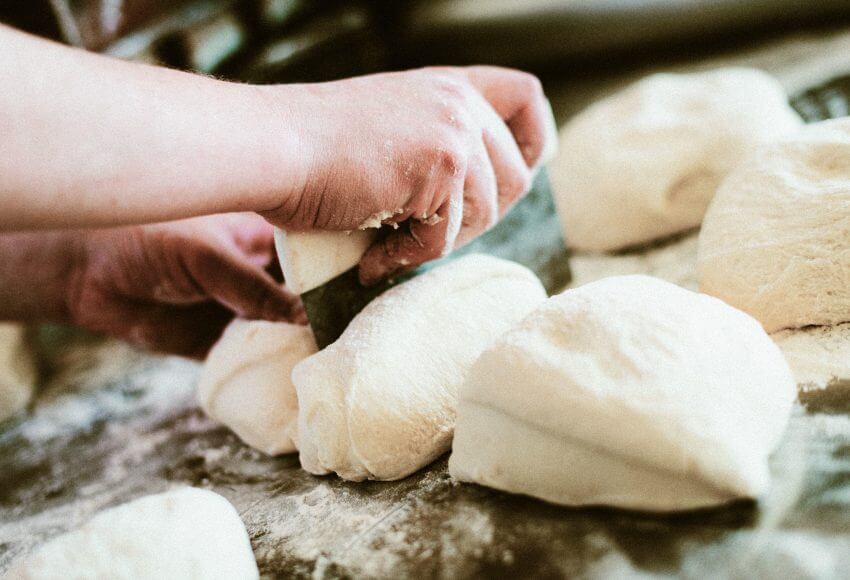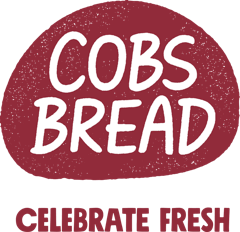What is Scratch Baking and why we do it!

What is Scratch Baking?
Scratch baking means creating baked goods from start to finish with the raw ingredients.
Why does COBS Bread scratch bake?
We believe that scratch baking is the best way to provide delicious tasting bread for our customers. By waking up early and baking from scratch daily, we ensure that we are providing the freshest bread and baked treats in town. Baking fresh is not just a philosophy it’s baked into everything that we do.
What are the steps in the scratch baking process?
To make any bread from scratch, there are quite a number of steps that need to be followed carefully for a successful bake. These steps are: scaling, mixing, dividing, intermediate proofing, moulding, final proofing, scoring and then of course baking.
- Scaling – it is very important to properly weigh all of your ingredients. Recipes are a guide toward achieving the perfect baked good. With practice and experience, recipes can be revised and adapted to achieve a variation of the original product. It is also how we come up with some of our product variations!
- Mixing – this is perhaps one of the most important aspect of baking. An undermixed/underdeveloped or overmixed/overdeveloped dough will result in a less than desirable product. During this stage, the flour is being hydrated and its gluten structure is developed and strengthened. A strong gluten structure will capture the escaping carbon dioxide from the dough and that’s what causes the bread to rise!
- Dividing – this step is what it says in the name. Dividing your dough! This will determine how big your baked goods are going to be. Having even sizes will result in even baking.
- Intermediate Proofing – this is a short rest-period between dividing the dough and moulding it. It is important as this lets the dough relax and results in an easier moulding process and also prevents the dough from tearing.
- Moulding – this is the step where you determine what you want your end product to look like. Different moulding techniques are required to achieve specific shapes.
- Final Proofing – another very important step in the process, during the final proof, the yeast is being activated. By exposing the dough to temperatures around 37C, this encourages yeast to eat the sugars in the dough (and flour). A by-product of this process is the carbon dioxide that helps the dough rise properly.
- Baking – the final step of our scratch baking process! Also another important step: proper pre-heating of the oven is a must. It is important to follow the recipe recommendation as baking temperature and time differs depending on what type of baked goods you are making. For example, we bake our French Baguettes on a stone deck for 25 minutes in a 220C oven (we also apply steam to create the nice crunchy crust), but our larger loaves and viennas bake up to 30 minutes in a 220-240C oven.
How long does it take to make a standard loaf from scratch?
An average loaf can take up to 4 hours to make from start to finish (that’s why we start baking before the sun comes up!). Aside from passion, we consider TIME our other secret ingredient. Following the scratch baking method just makes everything taste so much more delicious.
